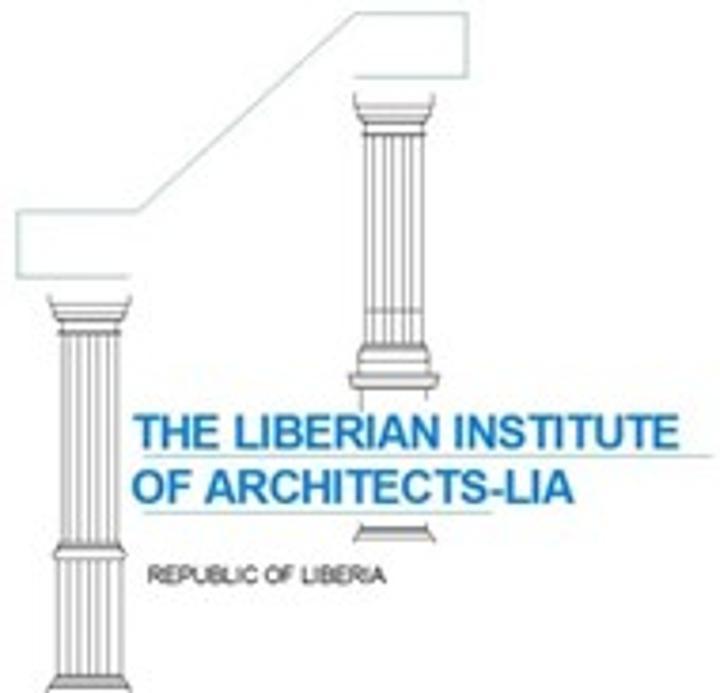Africa-Press – Liberia. Liberian architects are observing the National Architecture Week, with a call for a platform and more robust partnership with the Government of Liberia and the public to address poor and inadequate infrastructures, guarantee the worth of money and uphold the cultural values of the country.
The ‘National Architecture Week’, which runs from April 11 to 17 is an internationally designated event intended to inspire global attention and awareness to architecture, and the importance of the role that it plays in the creation and nurturing of human habitat to the extent that promotes human activities conducive to good living and progressive development.
The week is usually celebrated by national architectural institutions worldwide, such as the Liberia Institute of Architects (LIA). In doing so, appropriate activities and programs are designed to engage and focus the public’s attention towards the objectives of the event.
In a statement issued in Monrovia over the weekend, the Liberia Institute of Architects (LIA) observed that there are obvious and compelling reasons for more attention and focus to be placed on creating awareness on architecture.
It added that at the pinnacle of this endeavor must be the realization that the perception of architecture as a development tool must be taken very seriously, prompting engagement of professional architects by government and the public as indispensable development partners.
Inadequate infrastructure
The LIA observed that Liberia is one of many developing countries, characterized as possessing generally inadequate and poor infrastructure.
“Our human settlements – cities, towns and villages – are for the most part unplanned and lacking in the essential civil infrastructure and services that will deliver the quality of life we desire. As Liberia’s population continues to grow at an alarming rate, with a high youthful population, an already bad situation is worsened, resulting in the proliferation of more unplanned and informal settlements characterized by sub-standard to poor housing stock.”
According to the LIA, the national housing deficit stands at 500,000 in Liberia.
This, the group maintained, is alarming and the growing trend that allows it is very likely irreversible.
“Architecture dictates that public buildings that provide specially conditioned spaces for the performance of government work activities and other functions must be well situated, environmentally and functionally correct, of value for money, and also uphold and reflect the cultural values and image of who Liberians are and the direction they are heading. Sadly, some of our public buildings fall short of these lofty ideals.”
Call for actions
LIA stated that the picture presented above could persist and the situation worsened more, if urgent, concerted and deliberate actions are not taken.
The group emphasized that it is obvious that the government and public are well aware and attention has been drawn to the lack of order, beauty and quality of the built environment of most of the settlements in which we live and conduct our daily activities.
It noted that Liberians in general continue to yearn for their country’s cities, towns and villages to compare favorably to those of their neighbors’.
Fulfilling this yearning, the LIA added, will require that a general platform be put into place for promoting in a deliberate fashion, “and as a matter of necessity, what is already known: that the principal players responsible for shaping the built environment are architects, engineers and planners.”
“Knowing this and ensuring that we derive the best from it has been the enduring challenge faced in managing development of the built environment in Liberia. The promotional success of the platform will be the extent to which the three technical professionals are enabled, capacitated and effectively integrated into a systematic and sustainable process designed to formulate (inception and plan) and implement (design, construct and maintain) infrastructure based projects.”
The LIA maintained that if done, the process would yield best outputs in the way that Liberia’s built environment would evolve over time, by ensuring that architecture services are provided by qualified and certified persons; clients acquire value for money in the projects they undertake; and within best practice standardized procedures for project execution clients are protected against risks associated with service providers’ malpractices and professional negligence.
It furthered that a significant contribution to the goal of guaranteeing value for money lies in ensuring that building contracts for public projects are let out on the basis of competitive bidding, as a matter of general practice.
The group emphasized that the passing of the “LIA Architect Act of 2022” in 2023 by the National Legislature sends a clear signal of manifested political commitment on the part of the government to partner with the private sector through the devolution of authority to the professional institution, the LIA.
The partnership allows the LIA, through the enacted law to take on the responsibility to regulate the practice of architecture in Liberia.
The ultimate aim of the regulatory process ensures that persons and entities that are in need of architecture service become aware that it is in their best interest to obtain such service from service providers (mainly professional architects) who have been licensed/certified and registered as having the ability, capacity and legal authority (license) to provide such service.
The registration of architecture service providers involved a vetting process that ensures that service providers have the required academic and professional qualification credentials required to practice.
The LIA Architect Act of 2022 specifically deals with the qualification requirements for practicing architecture in Liberia.
The Act
Chapter Six Section 6.1 of the Act states that a person who wants to be a licensed and registered architect in Liberia should obtained the minimum academic qualification, professional training qualification prescribed by the LIA and approved by the ARB; must be a member in “good standing” with the “Institute”; passed the qualifying examinations of the courses prescribed under this Act, and after completing practical training of such description and for such period as prescribed by the Institute and approved by the ARB.
It also calls for such person to have paid the prescribed license and registration fees; and was a member of the Liberian Institute of Architects (“LIA” or the “Institute”) immediately before the commencement of this Act; or passed the qualifying examinations of any society or institute of architects by whatever name called, recognized by the Board as being in the opinion of the Board an association of equivalent status to the Liberia Institute of Architects (LIA).
The Act specifies that such person has to be confirmed by a competent medical institution to be of unsound mind.
If adjudged insolvent or bankrupt by a court of competent jurisdiction, the Act calls for one to obtain a certificate to the effect that his/her insolvency or bankruptcy has risen wholly or partly from unavoidable loses or misfortunes.
The Act also calls for a person not resident in Liberia being otherwise qualified to make a special application for temporary registration for the purpose of executing a specific project.
Under Section 6.1.1 captioned Qualification for registration as an ‘Architecture Firm’ the Act states that no business entity shall be registered as an ‘Architecture Firm’ unless the business has fully completed all business registration formalities of the Ministry of Commerce and the Liberia Business Registry, as are required to conduct business in Liberia; has at least one fulltime staff member who is a licensed and registered architect (in good standing with the LIA) that is recognized by the Board.
It further calls for a business entity to show evidence of having a physical address and basic production facilities from and by which its business will be conducted; and paid the prescribed fees to the Institute and Board.
The ACT empowers the LIA to assess the business entity to be deficient in the basic manpower and material resources necessary for functioning as an architecture firm; or whether said entity was convicted by a court of competent jurisdiction in Liberia or elsewhere, of any offence involving professional misconduct, fraud or dishonesty, and convicted; or if having been adjudged insolvent or bankrupt, has not been granted by a court of competent jurisdiction, a certificate to the effect that the firm’s insolvency or bankruptcy has risen wholly or partly from unavoidable loses or misfortunes.”
For More News And Analysis About Liberia Follow Africa-Press






